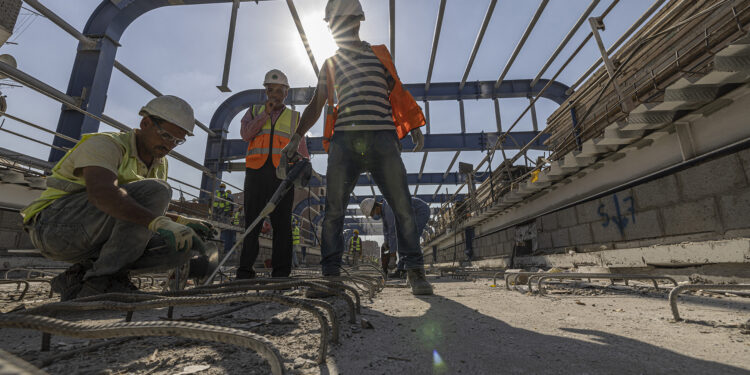US President Joe Biden said earlier that extreme heat costs the United States $100 billion annually, in an attempt to highlight the significant economic impact of rising temperatures.
This estimate, based on a report issued by the Atlantic Council of Studies, warns that these losses may double by 2030 due to heat waves caused by climate change, according to Bloomberg.
Worker productivity declines
High temperatures have a noticeable impact on worker productivity, according to Jill Rosenthal, director of public health at the Center for Health Progress, who explained that even limited exposure to high temperatures can slow cognitive function, making commutes increasingly uncomfortable and working outdoors more dangerous. .
Between 1992 and 2017, heat stress killed more than 800 workers and injured more than 70,000 in America, according to Bloomberg, citing figures issued by the Bureau of Labor Statistics.
Outdoor workers and regulations
The agency notes that outdoor workers in industries, such as construction, mining and agriculture, are most affected by extreme heat.
Bloomberg noted that only 5 US states require rest, shade, and access to water for workers, while the Occupational Safety and Health Administration (OSHA) is developing new standards to address heat hazards, and they are expected to be implemented next summer when temperatures exceed 26 degrees.
In contrast, countries like China have strict regulations requiring employers to train workers on heat-related illnesses, provide rest areas, and adjust working hours based on temperature. These measures aim to mitigate the impact of heat on productivity and worker safety.
Heavy effects
The San Francisco Federal Reserve estimates that by 2200, labor losses from heat will reduce US capital stock by 5.4% and consumption by 1.8%.
White-collar workers, although they are less directly affected, face a decline in cognitive performance due to heat, as neuroscientist Clayton Page Aldern explained in an interview with Bloomberg. Aldern points out that the process of cooling the brain during high temperatures depletes the energy needed for functions. Another complex vitality.
The heat also disrupts infrastructure, affecting railway lines, airport runways and roads.
Gabrielle Guarneri, a traveler from New Jersey to Manhattan who Bloomberg spoke to, experienced significant delays during last summer’s heat wave. This problem is exacerbated in areas where air conditioning is less common, such as Europe and some American schools and homes.
Companies are moving
Some companies proactively address heat-related issues. Mansoor Soomro, of Teesside University Business School, points out that companies are raising employee awareness and promoting measures such as “hydration stations” and risk assessments for vulnerable employees.
Extreme heat presents a multi-faceted challenge, affecting productivity, infrastructure and worker safety. As climate change causes more intense heatwaves, these issues will become increasingly critical in the future.



